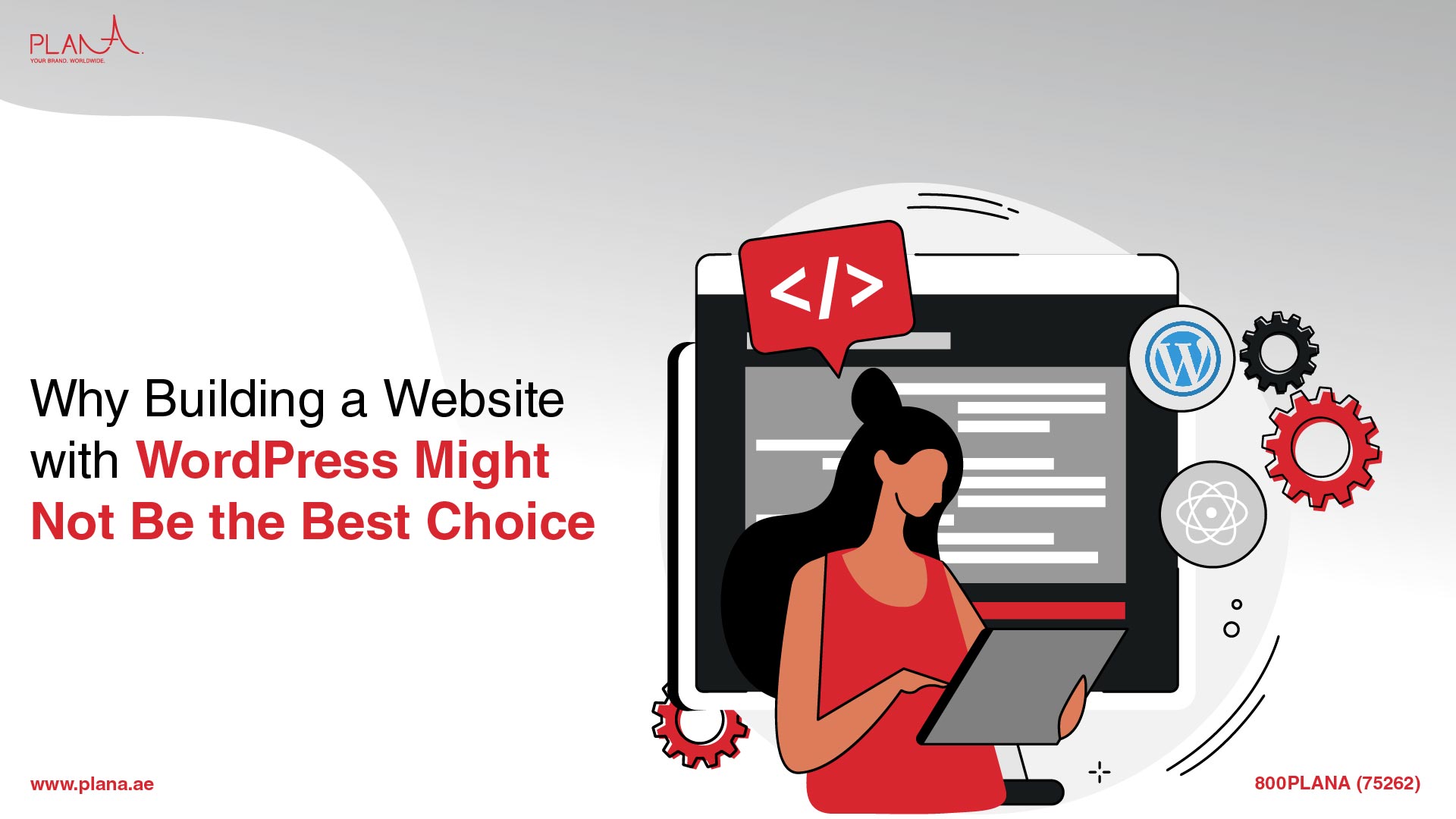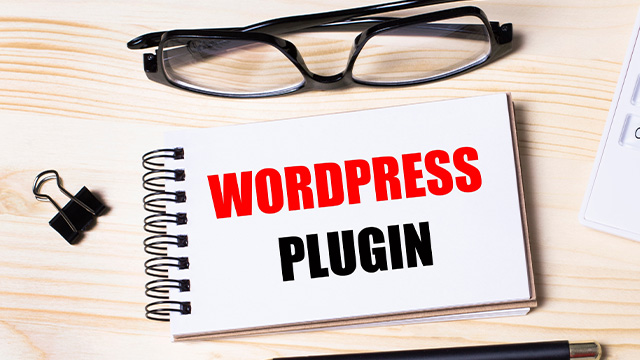Why Building a Website with WordPress Might Not Be the Best Choice
Why Building a Website with WordPress Might Not Be the Best Choice

WordPress is the most popular content management system (CMS) on the internet. Currently, this platform is used to build 43% of websites, and around 85.6 million websites have WordPress as their backend. It has an intuitive user interface, a huge library of themes and plugins, and a sizable user base.
However, WordPress may not always be the best option for everyone, despite its widespread use. With that in mind, let’s discuss various reasons why you shouldn’t create a website using WordPress as well as other CMS platform alternatives.
Why You Shouldn’t Build a Website with WordPress?

Security Concerns
Due to its popularity, hackers and online attacks frequently target WordPress. WordPress-powered websites might be exposed if they are not routinely updated and maintained.
Appearance
While WordPress makes it simple to customize the look and feel of your website, it currently powers half of all websites created using content management systems. WordPress websites are jam-packed with identical features that detract from the distinctive content they contain.
Plugin Compatibility and Updates

Some plugins may not be compatible with the most recent version of WordPress as WordPress develops, which could cause functional problems. Additionally, ongoing monitoring and troubleshooting may be necessary due to plugin upgrades and modifications.
Read Also: Website Development Tools Used Nowadays
Speed and Performance
WordPress websites sometimes encounter speed and performance problems, particularly when using a lot of plugins and hefty themes. Search engine rankings and user experience can both be severely impacted by slow loading times.
Customization Limitations
Even though WordPress has a large selection of themes and plugins, users with particular design requirements could still have restricted customization possibilities. For certain customers, advanced customization could need coding skills, which may not be practical.
Hosting

You must make sure that the server is safe in addition to worrying about protecting your website. Even while many people wouldn't consider the server to be a potential concern, if someone can hack a WordPress site, their backdoor access will be able to go through most of the security you put in place.
Poor SEO Performance
Although WordPress promotes itself as an SEO-friendly platform, practically all open-source CMSs are. WordPress simply offers you the most basic optimization, despite the fact that it must automatically optimize your website and raise your search rankings.
You must download specialized SEO plugins in order to increase your website. However as we all know, these plugins slow down the project's loading time.
Due to its duplicate-producing category system and custom tagging, WordPress is infamous for interfering with sitemaps. You either need to learn SEO or engage a professional who will do all the optimization to address these problems.
Is this platform really "SEO-friendly" after all? And do you actually need these extra costs? From a budgetary standpoint, investing in a custom website can be preferable. Yes, it could appear pricey, but you'll end up saving a lot of money in the long run.
It Is A Blog Platform Only

WordPress was founded with the intention of being a blogging platform. People simply began using it to create other things rather than using it as a blog. It doesn't change the reality that this was never how WP was designed to be used, even though the system may have significantly changed in response to these changes over time.
Support and Maintenance
Keeping a WordPress website up to date involves continuing work, such as frequent backups, upgrades, and bug fixes. Users who lack the necessary time or technical know-how could find this process tedious and overwhelming.
Alternative Website Building Platforms
Joomla

A powerful CMS, Joomla strikes a balance between personalization and ease of use. It has a wide range of functionality, is extensible, and has a strong developer community. Because of its simple user interface, Joomla is a strong candidate for websites of all sizes and levels of complexity.
Shopify

Shopify offers an elegant and user-friendly interface designed specifically for online selling as a specialist e-commerce platform. Without the requirement for technical experience, this all-in-one solution accelerates the process of creating and running an online store.
Shopify guarantees a hassle-free experience with secure and dependable hosting, automatic upgrades, and round-the-clock customer service. It is a top alternative for e-commerce businesses due to its broad number of expertly designed templates and extensive app store, which boost customization options.
Related: Tips to Get the Best Out of Your E-commerce Store
Drupal

Drupal is a great option for more technically savvy users looking for advanced customization and scalability. It offers unmatched flexibility, making it perfect for intricate and expansive websites. For beginners, it could have a more difficult learning curve.
Magento

With a heavy emphasis on online stores, Magento offers extensive features designed for e-commerce requirements, such as sophisticated product administration, multi-store functionality, and intricate shipping options.
Growing enterprises should use it because of its scalability and performance for managing vast product catalogs and heavy traffic. Professional online retailers use Magento because of its wide range of e-commerce-specific themes and extensions that provide a more customized and smooth buying experience.
FAQs
What are some secure alternatives to WordPress for building websites?
For creating websites, secure alternatives to WordPress include Joomla, Drupal, Wix, and Squarespace. Strong features with an emphasis on customization and scalability are offered by Joomla and Drupal.
Beginner-friendly drag-and-drop user interfaces are offered by Wix and Squarespace. These platforms are safe options for a variety of website requirements because they have built-in security safeguards and are updated frequently.
What steps can I take to enhance WordPress website security?
To enhance WordPress website security, follow these steps:
- To avoid vulnerabilities, keep WordPress, themes, and plugins updated.
- Create secure, one-of-a-kind passwords for each user account.
- To track and stop shady activity, use a reliable security plugin.
- To increase login security, use two-factor authentication.
- Regularly back up the data on your website to ensure a speedy recovery in the event of an attack.
- Enable SSL encryption for data transmission security.
- Establish a login cap to prevent brute- force attacks.
- Remove unnecessary plugins and themes to lessen security risks.
Are there specialized e-commerce platforms that offer better features than WordPress?
Yes, there are specialized e-commerce platforms that provide online storefronts with more capabilities than WordPress. Platforms with a sole focus on e-commerce, such as Shopify, Magento, BigCommerce, and WooCommerce (a WordPress plugin for e-commerce), offer a wealth of features designed for online selling, such as sophisticated product management, secure payment gateways, and adaptable templates.
These platforms are the best options for professional online shops since they provide excellent e-commerce capability and scalability.
Why don't developers use WordPress?
Developers may choose not to use WordPress due to various reasons:
- WordPress can be complicated for tasks that require more customization.
- Slow websites may be caused by cumbersome themes and plugins.
- WordPress is a popular platform, which makes it a target for attacks.
- Some developers favor different CMS platforms that are suited to their unique requirements and skill sets.
So, What’s the Final Verdict?

As a result, even if WordPress continues to be a popular option for many, it might not be the greatest option for everyone's website-building requirements. For certain users, issues like complexity, security worries, restrictions on customizability, and continuous maintenance can be problematic.
An easier and more positive website design process can result from investigating various website building platforms that meet certain requirements. Making a well-informed decision that ensures a successful online presence requires evaluating individual needs, technological aptitude, and long-term website goals.
Our team of talented web developers uses the latest tools and technologies to build beautiful, high-performing websites that improve your online visibility. We got you covered for everything from responsive design to flawless user experiences.
Contact us right now to discuss your project and learn how we can make your vision a reality. Let's create something great together!
